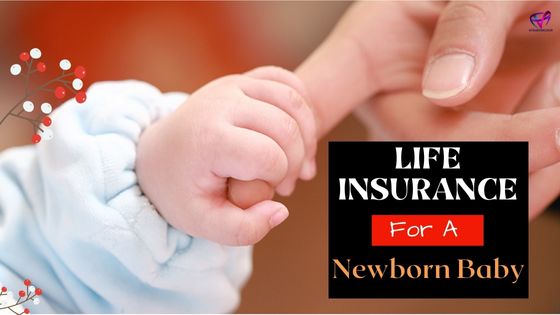Life Insurance for a Newborn Baby
Life Insurance for a Newborn Baby. The primary function of life insurance is to protect and provide for dependents in the event of a head-of-household’s death. Consequently, taking out a long-term life insurance policy on a newborn makes little sense, as no one depends on babies financially. However, buying a minor policy for a baby may offer advantages in certain situations, such as providing for burial expenses in a worst-case scenario.

Another route with life insurance is purchasing a whole life policy, like the Gerber Grow-Up plan for your newborn, to be used as a financial savings vehicle because a whole life policy builds cash value over time. The policy can be transferred to the child when they reach a specific age, such as 18 or 21, depending on the insurer. When the policy is transferred, a child could opt to keep it and continue building on the cash value or cash it out and cancel the policy, which eliminates the death benefit.
KEY TAKEAWAYS Of Life Insurance for a Newborn Baby
- Since life insurance compensates families for the loss of a breadwinner, a policy on a non-earning infant doesn’t make sense in most cases.
- Some families choose to purchase whole life insurance for their children as a way to help them save for college or future life events.
- A small-term policy on a child’s life can, however, be a way to cover expensive funeral costs or unreimbursed medical expenses.
- Many adult life insurance policies offer child riders for only a few dollars a month.
- There are companies that specifically market children’s whole life insurance plans, like Gerber.
Also Read: Health Insurance Plans 2022
How Life Insurance Works
First, a quick insurance primer. A life insurance policy pays a sum of money to a named beneficiary if the insured dies while the policy is in force. The policy owner pays a premium for it, usually monthly, to keep it active.
The two main types of life insurance are term life insurance and whole life insurance. Term life insurance pays only if the insured dies within the defined term, such as 10, 20, or 30 years. If the insured outlives the term, the policy expires without paying, or, in some cases, the owner can convert it to a whole-life policy. A whole life policy stays in force as long as the premiums are paid. Also Read: Life Insurance Corporation (LIC) Child Plans

While term life insurance offers the most protection for the lowest cost, some people gravitate to whole life insurance because it doubles as a tax-advantaged savings vehicle. A portion of each premium payment goes into an account that grows with interest over time. The amount of money in this account is the policy’s cash value. The policy owner can borrow against this money or even redeem their policy for it, effectively forgoing the death benefit.
Babies and Term Life Insurance
At first glance, insurance for infants seems counterintuitive. Life insurance compensates for the loss of a breadwinner, not a baby. Household finance experts recommend buying enough life insurance to see dependent children through to adulthood. For example, a person making $100,000 per year whose youngest child is 10 needs $800,000 in life insurance to provide until the child turns age 18 and is considered old enough to not need a guardian, at least in legal regard.
Because babies do not earn incomes, no one depends on them for a living. While parents losing a child is tragic, it has few financial repercussions: A family does not face a loss of income from the baby. For this reason, one could argue that buying a life insurance policy—even a relatively cheap term policy—on an infant’s life is unnecessary and a waste of money that could be put toward more useful or necessary expenses, such as saving for college. Also Read: Newborn Baby Health Insurance
In addition to the direct financial benefits, a life insurance policy for a child can also help defray the costs of counseling, time off from work, and other expenses related to a loved one’s untimely death, allowing more room for the grieving process and emotional recovery.
When Life Insurance for a Newborn Baby Makes Sense
Life Insurance for a Newborn Baby. However, a couple of strong arguments exist for buying at least a small life insurance policy for a newborn. The first is having money available if the absolute worst happens and the child dies young.
As of 2021, the most recent statistics available as of May 2022, burial procedures and expenses typically range between $7,000 and $12,000; the average funeral costs around $9,000 today, up significantly from about $6,000 at the turn of the 21st century.1
The death benefit from a child’s life insurance policy could cover those sad costs. In case of a long-term illness, it could also compensate parents for medical expenses disallowed by health insurance, helping them avoid burdensome debt.
In addition, life insurance is less expensive the younger the insured is. Some parents prefer to lock in a low premium so that the baby has inexpensive coverage for themselves when they become an adult. To augment an existing policy is often more economical than buying a whole new one. In addition, many adult life insurance policies offer child riders for only a few dollars a month. If buying the protection will bring a little peace of mind, why not? Even if it’s the claim that no parent ever wants to cash in.
Yes. You can pay for life insurance on a baby or child. Most life insurance for children is a whole life insurance policy with a cash value component. When a child turns 18 or 21, depending on the insurer, the child can take ownership of their policy, continue coverage, or cash in the value of the policy and cancel it.
Also Read: Eliminate Infant Insurance Problems Once And For All
Most newborns do not need life insurance, but some parents may decide to purchase a whole life insurance policy with a cash value component for their child. In addition, life insurance for children can safeguard you from funeral costs and grief counseling or other death-related expenses should the terrible and tragic premature death of your child.
If a mother dies in childbirth and has a life insurance policy, it will cover the death of the mother, but not the child.
Yes. You should ideally get life insurance before you even get pregnant as it may be harder, depending on various health factors, to be insured at a reasonable cost once you are pregnant.
